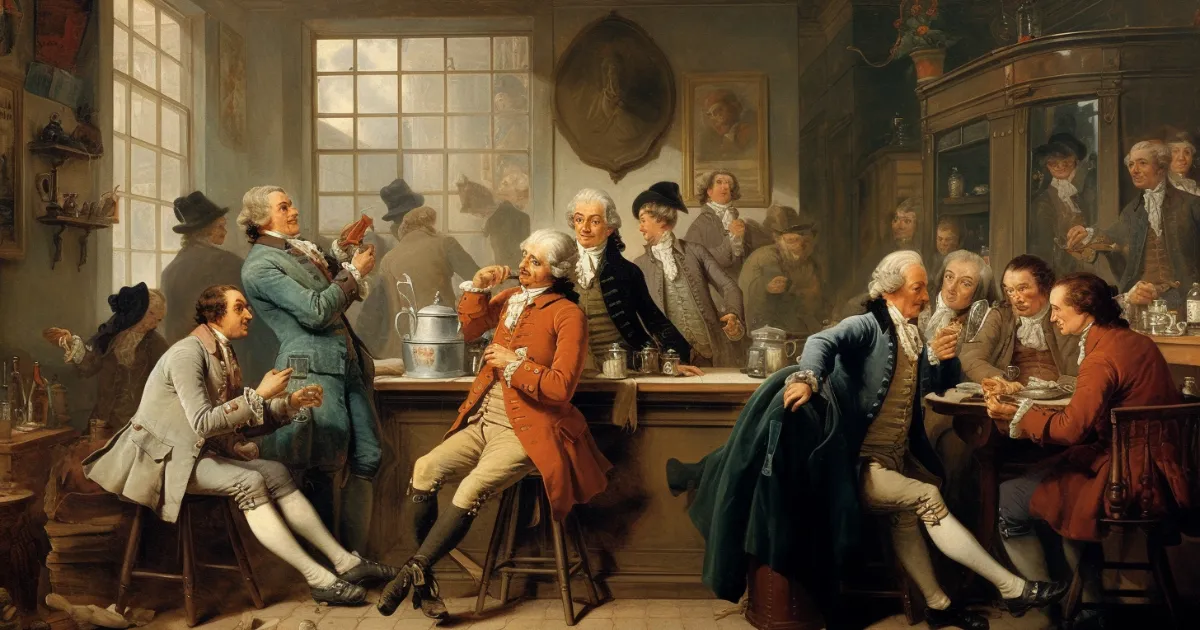Coffee Adventures: European historical coffee houses

During the Age of Enlightenment, coffee houses emerged as vibrant hubs of intellectual and social activity, serving as catalysts for the spread of Enlightenment philosophy and the exchange of ideas. These establishments transcended their role as mere purveyors of coffee, playing a crucial role in shaping the cultural, political, and intellectual landscape of the era.
Coffee houses became gathering places for individuals from diverse backgrounds, including scholars, writers, philosophers, and scientists. These patrons engaged in spirited conversations and debates, covering a wide array of topics, including politics, science, philosophy, and culture. These discussions not only disseminated new ideas but also challenged conventional wisdom, fostering a culture of intellectual curiosity.
One of the key contributions of coffee houses was the democratization of knowledge. They served as venues for the sharing of newspapers, pamphlets, and books, making information accessible to a broader audience. This accessibility to information was pivotal in spreading Enlightenment ideals and promoting an informed citizenry.
Enlightenment philosophers, such as Voltaire, John Locke, and Jean-Jacques Rousseau, frequented coffee houses to discuss and refine their ideas. These thinkers played a significant role in shaping the intellectual atmosphere of the time, advocating for reason, individualism, and the pursuit of knowledge.
Coffee houses also provided spaces for women to engage in intellectual discourse through gatherings known as "salons." Hosted by influential women like Madame Geoffrin in France, these salons encouraged discussions on literature, art, and philosophy, contributing to the broader Enlightenment movement.
Beyond intellectual exchange, coffee houses were hubs for the exchange of news and information. They served as vital sources of current events, political developments, and scientific discoveries, facilitating a more informed and engaged citizenry.
Moreover, coffee houses promoted social diversity by attracting patrons from various social classes. This diversity fostered a sense of equality and encouraged the challenging of traditional hierarchies, aligning with Enlightenment principles of inclusivity and egalitarianism.
Cultural and artistic innovation also thrived within coffee house settings. Musicians, writers, and artists often found inspiration and support in these establishments, contributing to the flourishing of cultural creativity during the Enlightenment.
In conclusion, these establishments played a pivotal role in shaping Enlightenment philosophy and the subsequent societal changes that unfolded in Europe and beyond.

